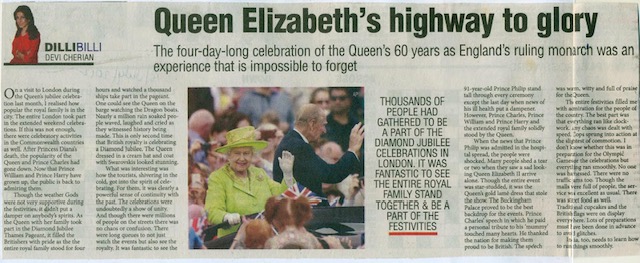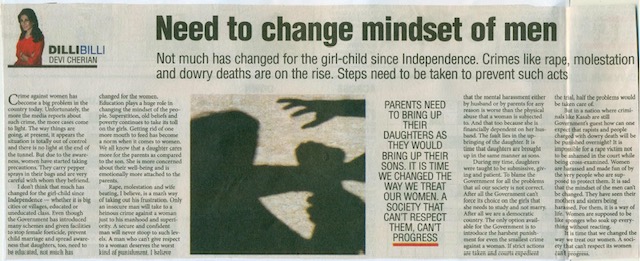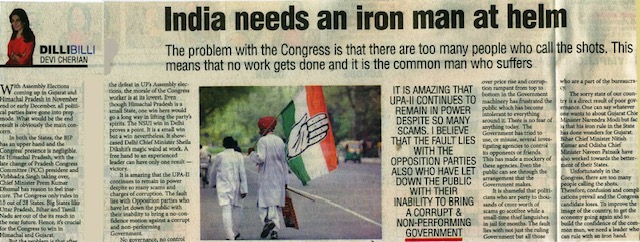‘Pioneer-Dilli Billi’- 14th.February.2010
‘Pioneer-Dilli Billi’- 14th.February.2010

The Union Government of India displayed its due concern over the internal security situation in the country by organizing yet another meeting of the Chief Ministers on February 7. The concerns were many, as articulated by the Prime Minister in his inaugural speech and later spelt out in greater detail by the Home Minister. The prime Minister referred to the alarming infiltration levels from across the border in Jammu and Kashmir and the need to be united in fighting terrorism and divisive forces. He also talked about naxalism and insurgency in the north- east. Later Chidambaram appealed to the states to fill around 4 lakh vacancies in various ranks of the police across the states and take expeditious decisions on issues pertaining to security.
Though security issues have been debated in the country for the last so many years, these debates rarely went beyond some routine follow up exercises by the states’ and that also primarily with a view to gain Centre’s nod for more funds under modernization or other heads. Law and Order being a state subject helped both the centre and the states in blaming each other for the security related lapses. A series of terrorist attacks since the beginning of this decade witnessed a war of rhetoric engaged in by the two. Union Home ministers, hitherto, were conveniently shrugging off their shoulders, expressing their helplessness at the increasing attacks, citing lack of determination and action on the part of the states.
It is to Chidambaram’s credit that for the first time even the opposition states are now willing partners in the exercise initiated by the centre for shoring up our security apparatus. The chief Ministers listened to him intently and later complimented him for a number of initiatives taken by him. Modi praised him for “quick response time”, while Shivraj and Raman Singh assured their cooperation on security issues. This is a very healthy sign for our democracy where on a sensitive matter like national security we are able to have a consensus.
It was very heartening for the Government of India to see some Chief Ministers having done their homework before coming for the meet. Some of the issues like police vacancies, requirement of police stations, quick response teams, mega city policing were never on the radar of the CMs before because they did not fall in the list of ‘ vote catching’ schemes. Chidambaram’s persistence and the fear of public outcry after another attack has forced the hands of CMs to now take proactive stand on police matters.
It is still too early to say whether Chidambaram will be able to push all his schemes through with the help of the states. Some of his pet projects, however, are getting all round support like the MAC, meant for immediate sharing of intelligence inputs with the states and concerned security agencies. Another ambitious scheme of linking the police stations with the district and state police HQs and finally to the national database on crime and criminals is also getting a serious look in.
There is still a lot to be done. The Indian public was eagerly looking forward to the police reforms as directed by the Supreme Court. The states are, however, still blocking them. How can you transform the security apparatus, without police reforms? How can you improve policing without targeting the police stations and how can you run the state law and order machinery without choosing the right IPS officers? Unfortunately the Netas and the Babus will never allow the police to get out of their clutches. Chidambaram’s biggest challenge would be to free the police from their yoke and selecting the right officers who are only answerable to the Law of the Land.



